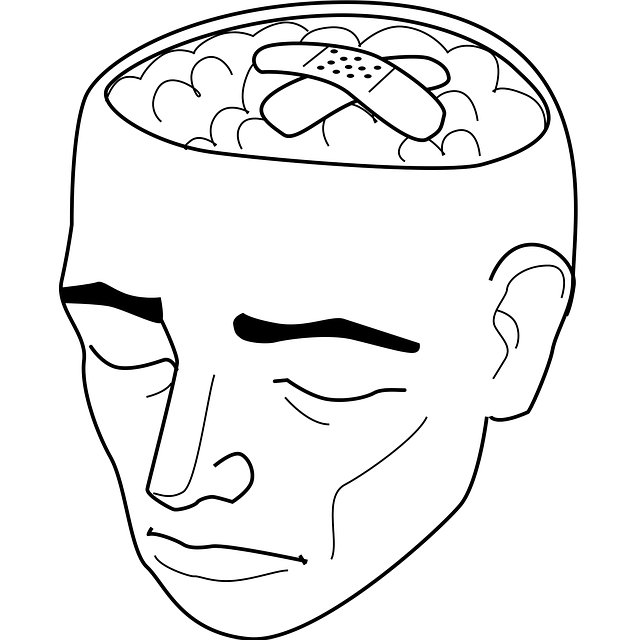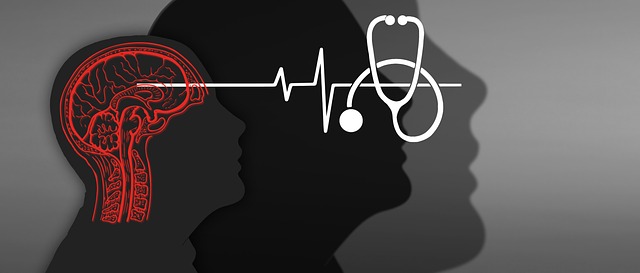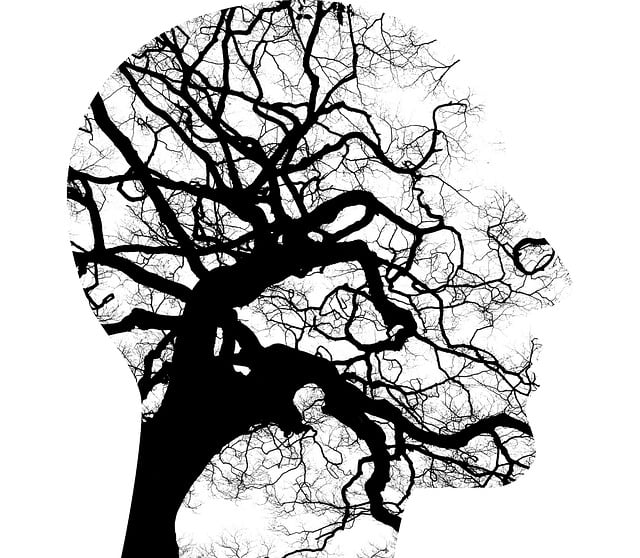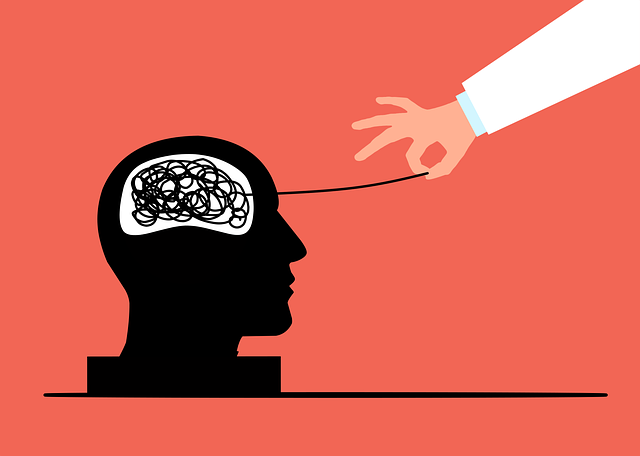Litton Sexual Addiction Therapy (LSAT) leverages data-driven analysis, integrating ethical guidelines and advanced technologies like machine learning and NLP, to understand and treat sexual addiction. They prioritize patient confidentiality, informed consent, and data security while extracting hidden patterns from records to personalize treatment plans. This approach, grounded in personal stories and cultural context, enhances LSAT's evidence-based strategies, improves treatment outcomes, and contributes to broader mental health awareness initiatives.
Mental health data analysis has emerged as a powerful tool for understanding and improving patient outcomes. This article explores the intricate process of analyzing and interpreting mental health data, from establishing a robust foundation through understanding key indicators to navigating ethical considerations in collection and processing. We delve into advanced techniques that enhance clinical insights, highlight the transformative role of technology, and present a compelling case study from Littleton Sexual Addiction Therapy, showcasing the real-world impact of data-driven approaches.
- Understanding Mental Health Data: A Foundation for Analysis
- Ethical Considerations in Collecting and Analyzing Mental Health Data
- Advanced Techniques for Data Interpretation in Clinical Settings
- The Role of Technology in Enhancing Mental Health Data Analysis
- Case Study: Applying Data Analysis at Littleton Sexual Addiction Therapy
Understanding Mental Health Data: A Foundation for Analysis

Understanding mental health data is a cornerstone for any analysis and interpretation process. At its core, this involves recognizing the nuanced nature of human behavior and emotional experiences. Each individual’s mental health journey is unique, shaped by personal history, cultural context, and a myriad of internal and external factors. Therefore, data collected from various sources such as surveys, clinical assessments, and electronic health records must be treated with care to avoid oversimplification or misinterpretation.
For instance, in the context of Littleton Sexual Addiction Therapy, understanding the underlying causes of sexual addiction requires more than just numerical statistics. It demands an empathetic approach that considers not only the individual’s behaviors but also their personal stories, relationships, and past experiences. By adopting this nuanced perspective, mental health professionals can develop tailored interventions and treatment plans effectively addressing complex issues. Moreover, integrating Risk Management Planning for Mental Health Professionals into data analysis ensures ethical practices and safeguards both clients and practitioners in an evolving field like mental wellness (Mental Health Awareness).
Ethical Considerations in Collecting and Analyzing Mental Health Data

When collecting and analyzing mental health data, especially sensitive information like that related to sexual addiction, therapists and researchers must adhere to stringent ethical guidelines. At Littleton Sexual Addiction Therapy, for instance, maintaining patient confidentiality is paramount. Every effort must be made to protect personal details and ensure informed consent from individuals participating in therapy or research. This involves clearly communicating the purpose of data collection, its intended use, and the potential risks and benefits.
Ethical considerations also encompass issues of privacy, data security, and the potential for misuse of information. Emotional healing processes are at stake when dealing with mental health data, particularly as it pertains to stress management workshops or emotional regulation strategies. Therefore, organizations engaged in such practices should implement robust data protection measures, including secure storage, access controls, and regular reviews of data handling protocols. This ensures not only the well-being of individuals but also fosters trust in therapeutic interventions and research methods.
Advanced Techniques for Data Interpretation in Clinical Settings

In clinical settings, advanced data interpretation techniques are pivotal for unearthing profound insights from mental health records. Beyond traditional analysis methods, professionals increasingly leverage machine learning algorithms and natural language processing (NLP) to extract nuanced patterns within vast datasets. For instance, these tools can identify hidden correlations between patient demographics, treatment types, and therapeutic outcomes, such as the success rates of Littleton Sexual Addiction Therapy programs. By applying AI-driven insights, healthcare providers can personalize care plans, enhancing the efficacy of treatments like Mind Over Matter principles in addressing issues like depression prevention.
Furthermore, sophisticated data visualization tools help clinicians translate complex statistical findings into comprehensible visual representations. This not only aids in decision-making but also facilitates effective communication with patients, fostering a collaborative environment for Self-Care Routine Development for Better Mental Health. As data analysis evolves, mental health professionals can stay at the forefront of evidence-based practices, ensuring that treatments like Littleton Sexual Addiction Therapy remain innovative and tailored to individual needs.
The Role of Technology in Enhancing Mental Health Data Analysis

In the realm of mental health data analysis and interpretation, technology plays a pivotal role in enhancing efficiency and accuracy. Advanced tools and software solutions enable professionals like those at Littleton Sexual Addiction Therapy to process vast amounts of data swiftly and accurately. These technologies facilitate in-depth analysis, allowing for more nuanced insights into patient conditions and treatment outcomes. For instance, digital platforms can streamline the collection of mental health records, making it easier to identify trends and patterns that may otherwise go unnoticed.
Moreover, technology supports risk management planning for mental health professionals by providing data-driven recommendations for improved safety protocols. Community outreach program implementation also benefits from these technological advancements, as they enable targeted interventions based on demographic and behavioral data. Additionally, digital tools can guide mental wellness journaling exercises, empowering individuals to actively participate in their healing process. This integrated approach not only enhances patient care but also contributes to the broader goal of improving community mental health outcomes.
Case Study: Applying Data Analysis at Littleton Sexual Addiction Therapy

At Littleton Sexual Addiction Therapy (LSAT), data analysis has become an integral part of their treatment approach. By collecting and analyzing patient records, therapists can gain valuable insights into the effectiveness of their interventions and tailor services to meet individual needs. This case study highlights how LSAT uses mental health policy analysis and advocacy to drive change.
Through systematic analysis of patient outcomes, LSAT has identified patterns related to stress management and its impact on sexual addiction recovery. By examining data over time, they’ve developed evidence-based strategies that not only enhance treatment effectiveness but also inform mental health awareness initiatives. This proactive approach ensures that LSAT remains at the forefront of innovative therapy practices, ultimately improving the lives of those seeking help for sexual addiction.
Mental health data analysis and interpretation are powerful tools that, when utilized ethically and effectively, can significantly enhance patient care. From understanding foundational concepts to leveraging advanced techniques and technology, this process plays a pivotal role in improving mental health outcomes. As seen in the case study of Littleton Sexual Addiction Therapy, data-driven insights enable tailored interventions and more accurate diagnoses, ultimately fostering better patient outcomes. By navigating ethical considerations and embracing innovative methods, mental health professionals can unlock the full potential of data analysis, revolutionizing care for those seeking support.











